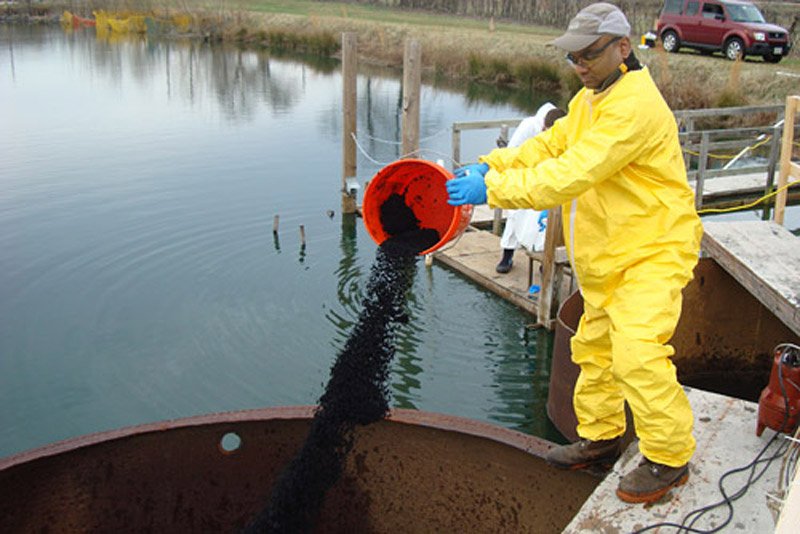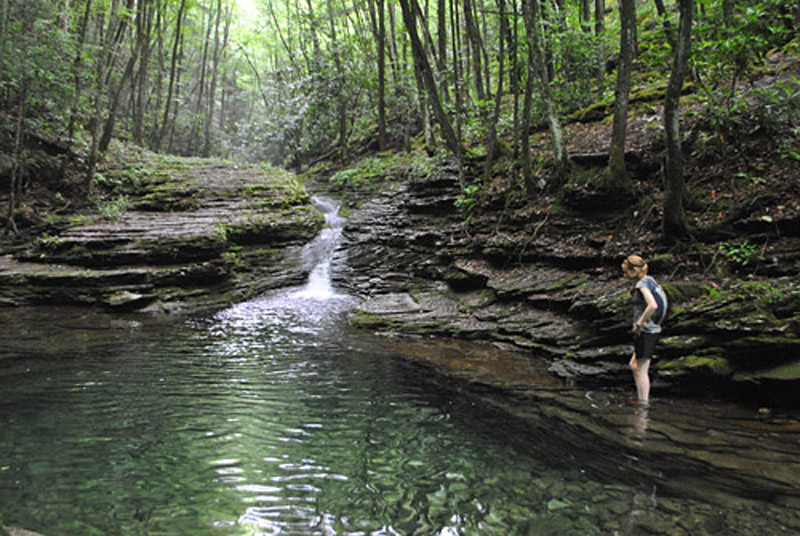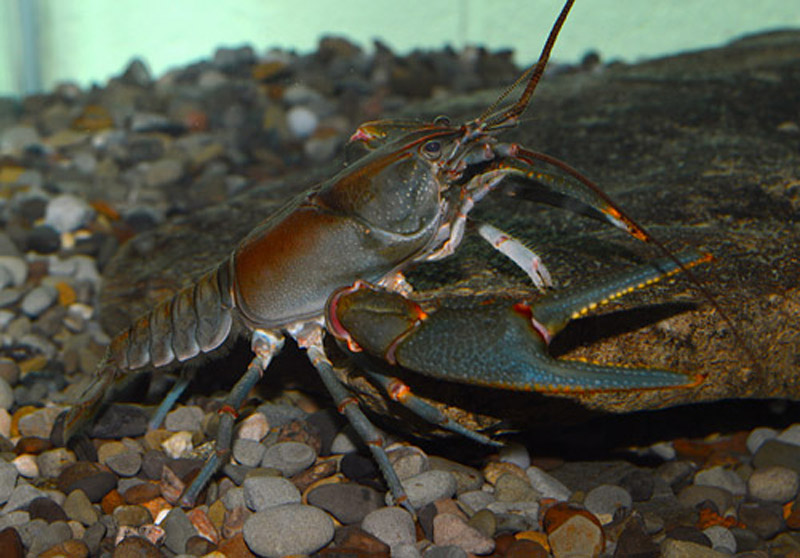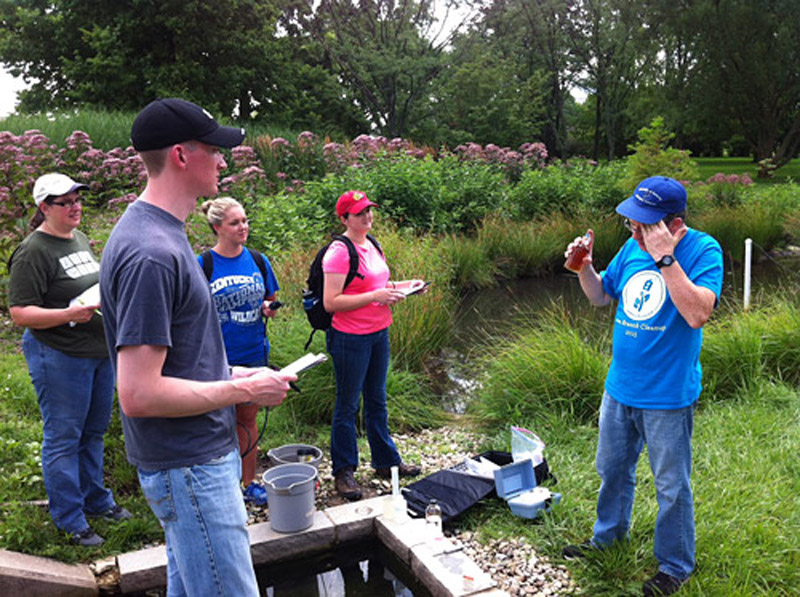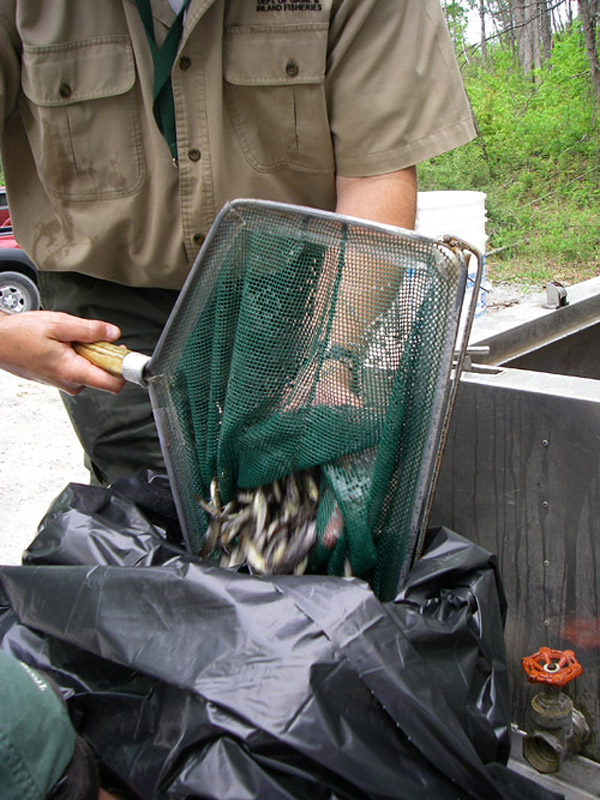
BLACK AND BLUE: Stories of Coal and Water
Featured Stories
Water Privatization
The troubles of an investor-owned, private water utility in West Virginia illustrate some of the hazards of private water ownership. Nationally, the number of Americans relying on public water utilities is growing, and for-profit water companies face a tougher market.
Virginia Town Tests Natural Pollution Treatment Techniques
Using natural methods to remove toxic material from soil and water is an ancient practice that has not been well-studied. A series of projects in Altavista, Va., could be the first to show that bioremediation can be a successful, cost-effective way to treat PCB contamination.
Disposing of a Chemical Past
Rockets and projectiles containing more than 500 tons of nerve gas and other chemical weapons from World War II and the Vietnam War era are stored near Richmond, Ky. If all goes according to plan, those weapons will be destroyed over the next few years in a multi-billion facility in final stages of construction.
Aug/Sept 2015 - Columns
Hiking the Highlands
Cooling off in the Devil’s Bathtub
Hikers flock to the cool swimming spots along the Devil’s Bathtub Trail in southwest Virginia, though the trail can be challenging.
Naturalist’s Notebook
Mounting Threats Imperil Two Appalachian Crayfish
There are more than 300 different species of crayfish in the southeastern United States, and two West Virginia species of these adaptable freshwater crustaceans may be declared federally endangered.
This Green House
Communities Find Solutions to Stormwater
To help reduce polluted stormwater from overwhelming nearby waterways, Appalachian cities, towns and universities are deploying green infrastructure and other creative methods.
Politics
Caught Between a Budget and a Hard Place
An Obama administration proposal would direct funds to workforce training and reemployment programs in the coal-bearing communities of Appalachia and increase the budgets of agencies focused on economic development, but regional politicians are slow to embrace the plan.
Member Spotlight
Farewells and Thank-Yous!
We say farewell to two long-time AV staff members, and express our sincere gratitude to our incredible 2014-15 AmeriCorps team.
Promoting the Power Plan as a Plus for Appalachia
Appalachian Voices has been busy promoting the Power-Plus Plan, which would among other things support job retraining for former miners, provide funds for community infrastructure improvements and direct new funding to clean up abandoned mines while creating new jobs.
Across Appalachia
Trout Introduction Efforts Show Promise in Southwest Virginia
A southwest Virginia effort to boost trout fishing has led to the introduction of tens of thousands of trout into two area streams, and local classrooms are also getting involved.
Train Fire Sparks Evacuations, Water Concerns
A train carrying a carcinogenic chemical derailed near Maryville, Tenn., leading to the evacuation of 5,000 citizens and fish deaths that might be linked to the spill.
Farmer Education Programs Blossom
Two North Carolina projects aim to help young and aspiring farmers make connections in the business.
Energy Report
Data Showing Decline in Surface Coal Production Raises Questions
Data shows a steep decline in coal production from Appalachian surface mines, yet the data doesn’t fully account for the extent of mountaintop removal coal mining.
Energy Report News Bites
The Southeast’s First Utility-Scale Wind Farm Breaks Ground, Clean Water Act Clarified, and Air Pollution Standards Challenged in N.C.
Contaminated Drinking Wells Near Ash Ponds
As of July, the N.C. health department sent “do not drink” notices to 301 homeowners near coal ash ponds whose well water contains dangerous levels of heavy metals and other contaminants associated with coal ash.



